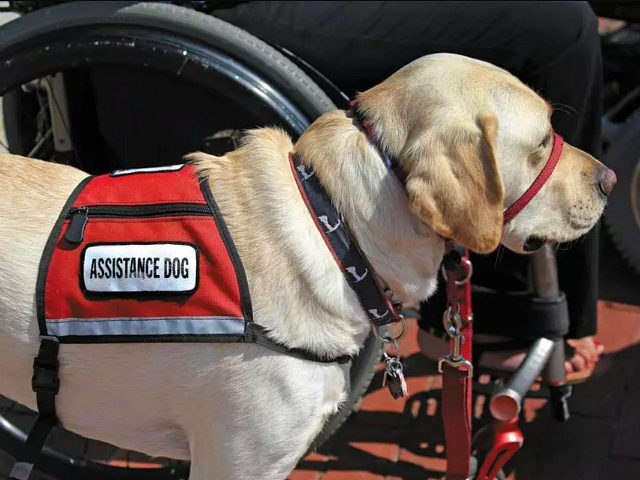A growing number of pet owners are trying to pass off their furry friends as service animals designed to help those with disabilities, and some states are trying to stop the practice.
Nineteen states are cracking down on people who try to use their pets as service animals when they do not have a medical condition that warrants one, USA Today reports.
The trend began over the past few years in state legislatures amid growing calls to regulate how to define a service animal that is allowed to be brought into certain public places where animals are usually banned.
Virginia’s state legislature passed a law in July 2016 that makes it illegal for dog owners to fit their pet with harnesses commonly used by service dogs for people with disabilities. Those who violate the law face a $250 fine.
Colorado passed a similar law in January of this year, imposing fines from $50 to $500 on pet owners who violate the law, and Massachusetts is considering a bill in the legislature banning “fake” service animals.
“Today, any pet owner can go online and buy a vest for a dog to pass it off as a service animal to gain access to restaurants, hotels and places of business,” said Massachusetts state Rep. Kimberly Ferguson (R-Worcester), who introduced the bill in her state’s legislature. “Their animals aren’t trained and end up misbehaving in these public places, which gives real service dogs a bad name.”
Service dogs, trained to perform tasks for those with disabilities, began as companions for people who had visual or hearing impairments. These specially-trained animals evolved over the years to assist those who are mobility-impaired, prone to seizures, diabetic, and those with mental illnesses.
Most people who pass off their dogs as service animals tend to do so to bring their furry companions into stores, libraries, restaurants, sporting events, offices, and other places where animals are usually banned. But sometimes non-service animals can cause problems in those places if they are not properly trained.
“A service animal is trained to be in public and to be under control and non-intrusive and not bark,” said David Favre, a law professor at Michigan State University College of Law. “They are trained not to be a nuisance in any way. You should hardly even know they are there.”
Some groups, such as the National Education for Assistance Dog Services, are proposing more drastic solutions to the problem.
Cathy Zemaitis, the development director of the Massachusetts-based group, said she hopes to create a national registry and certification for service animals to crack down on the misrepresentation.
“This is the beginning of a much larger conversation we need to have,” she said.

COMMENTS
Please let us know if you're having issues with commenting.